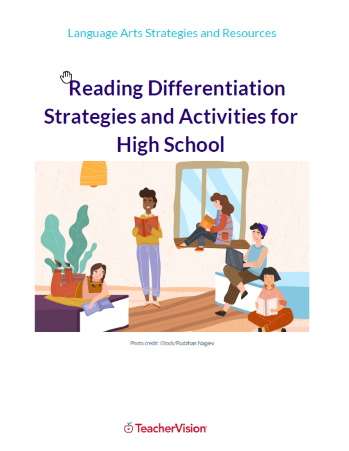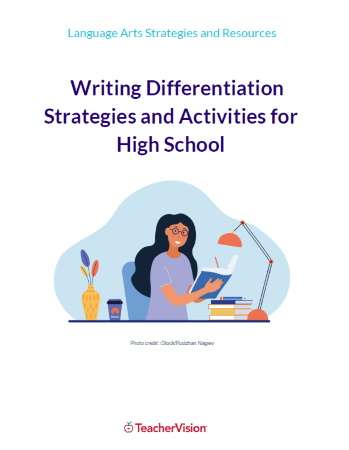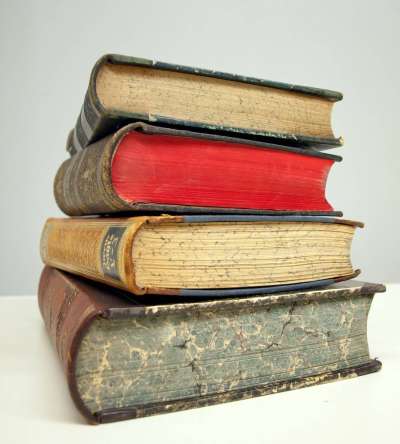Mark Twain's The Prince and the Pauper
Language Activities
1. Research changes in the English language, especially in spelling and pronunciation, from the 16th century to present day.
2. Create a translation of Hugh Latimer's letter at the Preface of the Signet Classic edition of The Prince and the Pauper, using standard English.
3. Compare the differences in spelling, and develop spelling rules for 16th-century England. Write a note to their friends using these rules.
4. Discuss the importance of Latin in the workings of British government and in the everyday life of British royalty.
Research Activities
1. Research the House of Tudor. This novel involves four characters who served as rulers of England: Henry VIII, Lady Jane Grey, Mary, and Edward VI. What were their reputations as rulers?
2. What role did the Duke of Norfolk have in the reign of Henry VIII? Why is he an important figure?
3. What kind of life did common people of 16th-century England lead? What recreational activities did they have? What kind of professions existed during this time? What were living conditions like?
4. Research punishments of 16th-century England. Why would this be an important part of common life?
Thematic Activities
1. What role does punishment play in the lives of people today? How does it vary from one country to another? Iraq? USA? China?
2. How much and what kinds of differences are there between the lives of the "rich and famous" and ordinary people? Are they treated equally in our courts?
3. Given the opportunity, who would you like to trade places with for one day? What would you do? Why would you want to make this switch? How would that person fit into your world?
4. What current stereotypes of different socioeconomic classes exist? Role-play each stereotype and give examples of how the media perpetuate them.
CHAPTER 1
Summary
Tom Canty, London pauper, is born on the same day as Edward (VI) Tudor. Edward is born with much celebration, yet Tom's birth is only a burden to his poor family.
Questions
1. What are some ways that Twain highlights the differences between the two boys?
2. What purpose does Twain have in comparing the two babies?
3. Why is this chapter so short? What effect does its shortness have on the reader?
Vocabulary
• pauper (15)
CHAPTER 2
Summary
Tom Canty lives on Offal Court with his mother, abusive and drunken father and grandmother, and his 15-year-old twin sisters Bet and Nan. Tom's mother is a beggar, and his father, a thief. Tom begs enough to get by, but his only escape from his extreme poverty is through reading, taught to him along with writing and Latin, by Father Andrew, the local priest.
Imagination and reading books give him another life besides starvation. Reading makes Tom act like a prince, in making wise suggestions and in his courtly speaking skills. He is admired as a hero to all except those in his own family. Tom sustains daily beatings but develops his own imaginary court to cope with his surroundings. The brutal reality of his life, contrasted with his vivid imagination, leads to bitterness and heartbreak.
Historical Notes
• Both Pudding Lane and Offal Court have to do with entrails. Pudding Lane is a factual place in London, the starting point of the Great Fire of London in 1666.
• During the 1530s and 40s, Henry VIII dissolved the monasteries and sold their lands to supply the royal coffers.
• Begging licenses were only given to the elderly and the sick during Henry VIII's reign. Anyone without a license was subject to terms in the stocks, whipping, having their ears cut off, and, for repeat offenders, death by hanging.
• Cheapside, during the time of Henry VIII, served as a commercial center in London. Fairs and public punishment were common sights here.
• In this chapter Tom Canty observes Anne Askew, who refused to recant her heretical rejection of the doctrine of transubstantiation, burned at the stake. Henry VIII had made acceptance of the doctrine of transubstantiation law during his reign.
Questions
1. What does offal mean? How does Twain's use of this word in naming where Tom Canty lives fit Canty's situation?
2. How can reading affect someone's personality? How can reading take a person beyond their station in life? How does reading affect Tom's personality?
3. What kinds of "escapes" do people resort to today? How do they affect their outlook on their world? What is Tom's escape? How does it affect his outlook?
Vocabulary
• stealthily (17)
• mendicancy (17)
• stringent (17)
• lament (18)
• forlorn (19)
• cuffing (19)
• obeisances (19)
• sordidness (20)
Activities
1. Keep a diary showing Tom's changes in language, personality, and outlook from Father Andrew's perspective.
2. Research the types of "entertainment" Tom experiences while at Cheapside on page 18 in the Signet Classic edition.
CHAPTER 3
Summary
Tom wanders away from home and finds himself at the palace. He catches a glimpse of the prince and begins staring. A soldier grabs Tom and throws him aside. The prince sees the soldier's rudeness and invites Tom in to eat. They compare lives and Edward gets so excited about Tom's "adventurous" life that he offers to exchange places with him.
They change clothes and realize the similarity in appearance. Edward notices a bruise on Tom's hand where the guard had grabbed him, and runs off to reprimand the guard. The guard opens the gate and boxes Edward on the ears, thinking he is the beggar Tom. Edward cries, "I am the Prince of Wales" and is mocked for it all the way down the road.
Questions
1. What are some of the similarities between Tom's and Edward's lives? What is Twain's purpose in highlighting these?
2. Why is Edward so excited about Tom's life? What makes it appealing to him?
3. What is the divine right of kings? Why is it ironic, then, that the guard mistakes Edward for the pauper Tom?
Historical Note
• The Punch and Judy shows that Tom observes are an anachronism. With its origins in Italy, the shows only reached England after 1688. In the shows, Punch is a "hook-nosed puppet who beats his wife Judy to death, strangles his child, kills his dog, and brutalizes several other characters, all in a grotesquely comical fashion."
Vocabulary
• sauntered (21)
• halberds (22): combination spear and battle-ax
• mayhap (23)
• prithee (24)
• raiment (24)
• lackeys (24)
• enow (24)
• cofferer (24)
• maltreated (26)
Activities
1. Draw a picture of the palace as described by Twain (21).
2. Compare Lady Jane Grey's and Mary's characters to their reputations as rulers of England (24). Who would be the better monarch? Why?
3. Language mini lesson: Translate Edward's courtly words into modern English and develop modern definitions for the courtly expressions.
• "Thy pardon, I had not meant to laugh. But thy good Nan and thy Bet shall have raiment and lackeys enow, and that soon too; my cofferer shall look to it. No, thank me not; 'tis nothing. Thou speakest well; thou has an easy grace in it. Art learned?"(24)
• "Marry, that would not I mislike. Tell me more" (25).
• "Oh, prithee say no more; 'tis glorious? If that I could but clothe me in raiment like to thine, and strip my feet, and revel in the mud once, just once, with none to rebuke me or forbid, meseemeth I could forgo the crown!" (25)
• "Oho, wouldst like it? Then so shall it be. Doff thy rags and don these splendors, lad! It is a brief happiness, but will be not less keen for that. We will have it while we may, and change again before any come to molest." (25).
Quotation
"The soldiers presented arms with their halberds, opened the gates, and presented again as the little Prince of Poverty passed in, in his fluttering rags, to join hands with the Prince of Limitless Plenty." (22).
CHAPTERS 4 and 5
Summaries
Chapter 4: Edward is alone in the city he knows nothing about. When he comes upon some apprentices from Christ's Hospital who mock him, he goes for his sword and is mocked further because he doesn't have one. Edward challenges one of the boys and is torn to shreds. After the fight he remembers Tom's talk of Offal Court and hopes to get there before he drops of exhaustion. John Canty comes across Edward and cuffs him for Tom's being away so long. Edward is relieved that someone has come to take him back to the castle; Canty thinks "Tom" is being uppity.
Chapter 5: Tom thinks the servants mock him when they leap to his service. When Lady Jane Grey enters, he begs her to help him. She thinks he's crazy. King Henry agrees that "Edward" is unwell, especially when Tom insists on telling the truth. When the king asks him questions in Latin, Tom answers poorly, but in Latin, and doctors say it's indicative of his state of mind. When the king asks questions in French, which Tom doesn't know, his inability to reply shocks the king. The king remains convinced, however, that "Edward" will reign after the king dies. Tom/"Edward" is sent to his uncle, the Earl of Hertford.
Historical Notes
• A gibbet is a gallows that has a post with a "projecting arm" on which the bodies of executed criminals were hung for display.
• "Tom O'Bedlam" is a nickname for a resident of the Hospital of St. Mary of Bethlehem, an insane asylum in London. "Bedlam" is a shortening of Bethlehem; therefore "Tom O'Bedlam" is another way of calling someone a lunatic.
Questions
1. How does Edward's perspective of his father bring irony to the situation at Grey Friar's Church in Chapter 4?
2. How does Edward's reaction to John Canty lend humor to his situation?
3. How do appearances affect the way both Edward and Tom are treated? How do they react to the way they are treated? How do "clothes make the man" in today's society? How do people react to outward appearances?
4. How does Twain inject humor into the situation of both boys? How does honesty play into that humor?
5. Why do both boys feel trapped? Find examples of this in both chapters.
6. How is nobility shown as pompous in these chapters? What does this seem to say about democracy?
Vocabulary
• sally (28)
• homage (28)
• besmirched (29)
• squalid (29)
• ruffian (29)
• profaned (29)
• stupefied (30)
• vermin (30)
• trifling (32)
• supplicating (32)
• sheweth (34)
• baleful (35)
• attainted (35)
Quotation
"Thou the king? Then I am undone indeed!" (33)
Activities
1. Language mini lesson: Twain has an excellent ear. Read a few Twain short stories or excerpts from Twain's autobiography to sample the skill Twain exhibits with language. What similarities are there in styles and themes between Twain's other works and The Prince and the Pauper?
2. Research the classical education of nobility. What is the nobility required to know?
3. Compare Twain's description of Henry VIII (33) with portraits done of him. What was Henry VIII's cause of death?
4. Research the Duke of Norfolk's death. What happened to enemies of the crown in Henry VIII's day?
5. Research Henry VIII's relationship with the Catholic church.
CHAPTER 6
Summary
Tom is present at a council meeting of all the nobility and has no idea how to proceed. The Lord St. John asks that everyone else be dismissed except for Hertford, St. John, and the "prince." When the others leave, St. John discusses the king's plan to help keep Tom out of the public eye, on account of his "illness." Hertford passes word of this on to Edward's sisters, and St. John covers for him on many issues of propriety. Lady Jane speaks to Tom in Greek, but he cannot understand, and Elizabeth covers for him by replying.
At the king's banquet, Hertford and St. John cover for Tom most of the evening and prompt him to leave when things get too rough. The guardians then discuss "Edward's" madness, and the effect madness has had on the crown in history. St. John has misgivings about Tom actually being the prince. Hertford doubts Tom as well, but because he feels that most impostors would be demanding that they were the prince, he attributes Tom's behavior to madness.
Questions
1. What comment is Twain making about royal life in this chapter? Who makes the decisions?
2. Why is English royalty so dependent upon ceremony? Find examples of rituals/protocol in this chapter and explain the importance of each. To what extent are they necessary? Why do they exist?
3. Why does Tom insist he is not the prince? What does this show about his character? Why do others not believe him?
Vocabulary
• vigilant (40)
• giddy (41)
• exaltation (44)
Quotation
"They felt much as if they were piloting a great ship through a dangerous channel; they were on alert constantly, and found their office no child's play." (41)
CHAPTER 7
Summary
Tom goes through the ordeal of getting prepared for dinner. He makes mistakes natural to someone who has not learned courtly manners, which confirms the rumors of "Edward's" illness. Tom's nose itch is treated like a minor crisis; he knows he is not to scratch it himself. Tom drinks the finger bowl and leaves before the blessing.
In his chambers he tries on a suit of armor and cracks nuts that he stole from the dinner table. He finds a collection of books, one on the etiquette of the English court, and begins to read.
Questions
1. Why does Twain spend such a long time detailing the process of getting prepared for dinner? Why are so many servants present?
2. What are the "Grand Hereditaries"? What purpose do they serve? For what purpose does Twain include them?
3. Why hasn't Twain written about Edward in these last few chapters? How do these chapters illuminate Edward's background and character, even though he's not there?
Vocabulary
• vagaries (46)
• sumptuous (48)
• zeal (48)
Activities
1. Research a typical meal for English royalty versus a typical meal for English commoners. Note that Twain mentions that lettuce and turnips are new delicacies (46). What else would be "new" to the English table during the 1500s?
2. Rewrite the chapter as if Edward had been present. What would he have done "correctly," according to royal table manners?
3. Etiquette mini lesson: Research proper table manners and conduct a "tea" with students applying their newfound knowledge.
4. Semicolon mini lesson: Twain uses the semicolon frequently in dialogue throughout this chapter. Have students "collect" sentences using the semicolon and have them determine the rule for the correct usage of a semicolon.
CHAPTER 8
Summary
Henry VIII realizes he is dying but wants to make sure the Duke of Norfolk goes first. He resolves to go before Parliament to seal the warrant but suffers a spell and is unable to go. In order for the Lord Chancellor to carry out the king's request to see Norfolk's severed head before he dies, the Lord Chancellor must have the Seal, which Henry gave to the prince. Hertford goes to Tom to get the Seal, but Tom has no idea where or what it is. The king falls asleep, and Hertford awaits the king's orders. When the king wakes, he berates Hertford for not having carried out his request and demands that the small, portable Seal be used to carry out his command.
Questions
1. What is the Great Seal? What is its purpose?
2. Why is the Great Seal important to the king?
Vocabulary
• ashen (49)
• pallor (49)
• restoratives (49)
• wrath (50)
• miter (51)
Activity
Design your own Seal to carry out your own wishes. Make it reflective of who you are, and give it a slogan that reflects your philosophy.
CHAPTER 9
Summary
Twain describes with rich detail the wealth of the English realm, with Tom Canty at the center of it all, clothed in the prince's garb.
Questions
1. What does the amount of description at the beginning of this chapter accomplish? Why include Tom at the end?
2. How has Tom changed from the Tom of Offal Court?
Vocabulary
• myriads (52)
• pretensions (52)
• purfled with minever (53): bordered with fur
• pourpoints (53): quilted doublets
• hauts-de-chasses (53): breeches
• habited (54)
• doublet (54)
• hovel (54)
Activity
Write a description of the outfit that makes you feel your best in the manner describing Tom used in this chapter.
CHAPTER 10
Summary
John Canty drags Edward into Offal Court, where he asks Edward again to identify himself in front of his family. When Edward tells the truth, the family is shocked and worried that "Tom's" reading has eaten away at his mind. Edward offers to get Tom back for them if they go to the palace.
John scoffs at "Tom" and makes fun of his airs but demands "Tom" turn over the money he had made begging so they can pay the rent. When "Tom" has no money, Canty and Tom's grandmother beat him, while Tom's mother tries to protect him. Tom's mother and sisters are beaten even more fiercely for it.
When the family goes to sleep, the sisters and Tom's mother comfort Edward by covering him and saving food for him. Edward thanks them and says they will be rewarded for their kindness by the king. The women are overcome with sorrow for "Tom's" madness.
Tom's mother goes to bed with doubts as to whether this boy is really Tom and plans a test to determine his real identity. Tom fails the test, but she still convinces herself that the boy is Tom.
Edward wakes up and calls to his manservant, thinking his adventure has all been a dream, and discovers it has been all too real. While he mourns his bad fortune, a man comes to the door and tells John Canty that the meddler Canty attacked was Father Andrew, who died as a result. Canty and the family run off into the night to avoid arrest. The town is alive with revelers, and Edward sees this as his chance to escape. When John Canty is persuaded to drink from the loving cup as a salute to the Prince of Wales, Edward escapes.
Edward immediately suspects that Tom has taken advantage of his situation and has usurped Edward's throne. He plans to have Tom hanged for treason as soon as Tom has had enough time to prepare himself spiritually.
Questions
1. Why does Edward correct John Canty for speaking to him directly?
2. How are Edward's and Tom's situations similar? How are they both abused and comforted?
3. What does Father Andrew's death mean for Tom?
4. What do Edward's plans for Tom's death say about his character?
5. Why does Twain spend only one chapter on Edward's experience as a pauper, while he spends many chapters on Tom's experience as a noble? How does he consider his audience as he writes?
Vocabulary
• cudgel (55)
• loathsome (55)
• frowzy (55)
• malignant (55)
• mummeries (55)
• ruffianly (56)
• freighted (56)
• joviality (57)
• sordid (57)
• interposing (57)
• infuriated (57)
• eftsoons (60): soon afterwards
• spurious (61)
• usurper (62)
Activities
1. Draw pictures of the Canty family based on Twain's description.
2. Where is ceremony important in our culture? Design a ceremony/celebration you'd like to see put into our culture. Why is this needed?
Quotations
"O my poor boy! Thy foolish reading hath wrought its woeful work at last and ta'en thy wit away. Ah! Why dids't thou cleave to it when I so warned thee 'gainst it?" (56)
"Thou shalt not suffer for me, madam. Let these swine do their will upon me alone." (57)
CHAPTER 11
Summary
While Tom presides at a sumptuous banquet, Edward pounds on the gates of Guildhall, denouncing Tom as a fraud and proclaiming that he, Edward, is the rightful prince. Miles Hendon defends Edward from the crowd, but, as it seems he will lose, a messenger from the palace declares King Henry VIII is dead, and Tom is proclaimed king. His first act as king is to free the Duke of Norfolk.
Questions
1. How are Tom's and the nobles' view of London different from the one Edward experiences as a pauper?
2. How does Tom's partaking of the loving cup in the court differ from the one in the previous chapter?
3. How does Tom's first act as king reflect his character?
Vocabulary
• bawdkin (64): embroidered fabric made of woven silk and gold thread • bawdricks (64): ornamental belts worn diagonally across the chest
• voyded (64): cut to show the garment underneath
• cannell-bone (64): collarbone
• mommarye (64): mummery, or mimed acting
• taunt (65)
• goad (65)
• mortification (65)
• mobtide (66)
• revel (66)
• liege (66)
• prodigious (67)
Activity
Journal: Today is your first day as President of the United States. What do you do?






